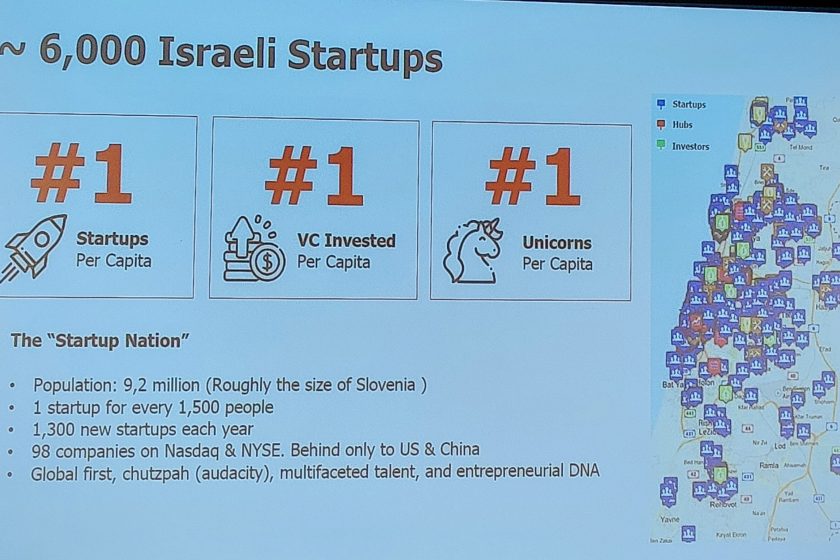In connection with the ELTA conference in Tel Aviv, which was reported here, a “start-up nation tour” was arranged the day after. It started out with some presentations and discussions at the law firm Naschitz Brandes Amir.
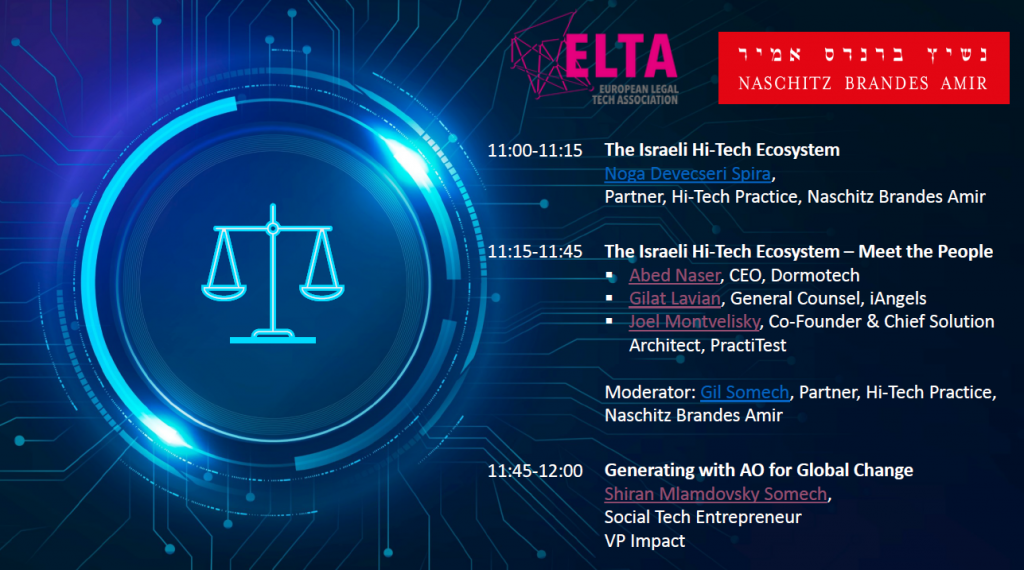
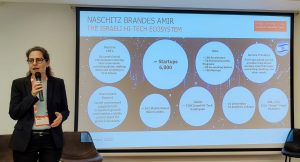 Israel is the nation with the most startups per capita in the world so it is truly interesting to take a further look at the reason for this. In the discussions between Gil Somech, Naschitz Brandes Amir, Abed Naser, Joel Montvelisky, PractiTest, Gilat Lavian, iAngels and Abed Naser, Dormotech, it was stressed that it is a nation of individuals not taking no for an answer and people are thinking “outside the box” or without even realizing there is a box.
Israel is the nation with the most startups per capita in the world so it is truly interesting to take a further look at the reason for this. In the discussions between Gil Somech, Naschitz Brandes Amir, Abed Naser, Joel Montvelisky, PractiTest, Gilat Lavian, iAngels and Abed Naser, Dormotech, it was stressed that it is a nation of individuals not taking no for an answer and people are thinking “outside the box” or without even realizing there is a box.  Though, the most important reason for this innovation culture might be the knowledge sharing culture. The country is quite small, and people have networks of friends in all kinds of areas of the society and people can easily reach out to friends working at other companies to help them to solve a problem. This way, even if you are a small company, the pool of knowledge is stretched around the country to many different companies and areas.
Though, the most important reason for this innovation culture might be the knowledge sharing culture. The country is quite small, and people have networks of friends in all kinds of areas of the society and people can easily reach out to friends working at other companies to help them to solve a problem. This way, even if you are a small company, the pool of knowledge is stretched around the country to many different companies and areas.
The big challenge for the future is to find and retain the right talent, and there were two interesting aspects on this in the discussion. First, thanks to (if it is possible to be thankful for this terrible pandemic) the covid-situation almost everyone has learned to use online communication tools and it has become completely normal to work from home. This means that when hiring for example an engineer, it doesn’t matter in what country she or he is located. Secondly, there seems to be a changed view on age. Previously, companies preferred to hire young “hungry” people fresh from the universities. But now there seems to be much more interest in older employees. They often can work from home (which means they don’t need new shiny offices) and they are usually viewed as more loyal to their company. This way the pool for talent has grown substantially. Maybe this is a new trend?
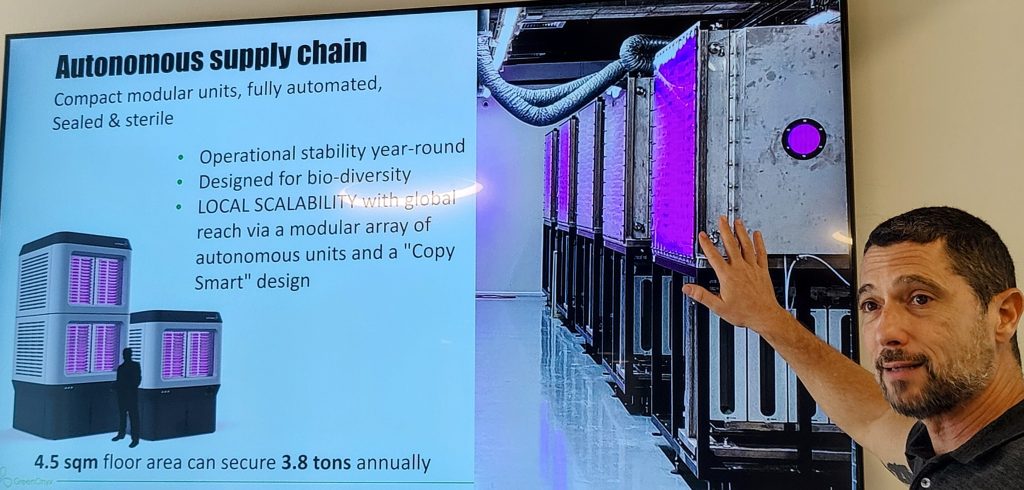 This day ended up with a visit at the company GreenOnyx, which is an innovative farming company. This is a truly amazing company. They have used tech to solve the need for sustainable fresh nutrition available nearby, by producing “green caviar”,
This day ended up with a visit at the company GreenOnyx, which is an innovative farming company. This is a truly amazing company. They have used tech to solve the need for sustainable fresh nutrition available nearby, by producing “green caviar”,  a duckweed that grow in compact modular automated units. This means fresh greens can be made available in cities without long transportations and produced in an energy and water efficient way.
a duckweed that grow in compact modular automated units. This means fresh greens can be made available in cities without long transportations and produced in an energy and water efficient way.  The idea is that everyone can get their daily portion of nutrients with just a few spoons of this duckweed. It doesn’t really taste anything so it can easily be added to any other kinds of food and exclude the need for any other kinds of greens. This is truly an interesting new kind of technology innovation.
The idea is that everyone can get their daily portion of nutrients with just a few spoons of this duckweed. It doesn’t really taste anything so it can easily be added to any other kinds of food and exclude the need for any other kinds of greens. This is truly an interesting new kind of technology innovation.
 At the Ambassador meeting at the H-F Law firm the day before the ELTA conference, we received another startup presentation from the company Darrow presenting their AI-powered justice intelligence platform by Elad Spiegelman and Gila Hayat.
At the Ambassador meeting at the H-F Law firm the day before the ELTA conference, we received another startup presentation from the company Darrow presenting their AI-powered justice intelligence platform by Elad Spiegelman and Gila Hayat.  They approach the legal field in a new way, without the traditional focus on the lawyer. Their mission is to use AI to analyze data available online to find undiscovered legal violations. Based on these discoveries, law firms can initiate class actions (in the US) to enforce corporate compliance and recover billions of dollars in compensation. The idea for Darrow is to analyze the data to find these cases and sell them to lawyers, i.e. give more business to lawyers.
They approach the legal field in a new way, without the traditional focus on the lawyer. Their mission is to use AI to analyze data available online to find undiscovered legal violations. Based on these discoveries, law firms can initiate class actions (in the US) to enforce corporate compliance and recover billions of dollars in compensation. The idea for Darrow is to analyze the data to find these cases and sell them to lawyers, i.e. give more business to lawyers.
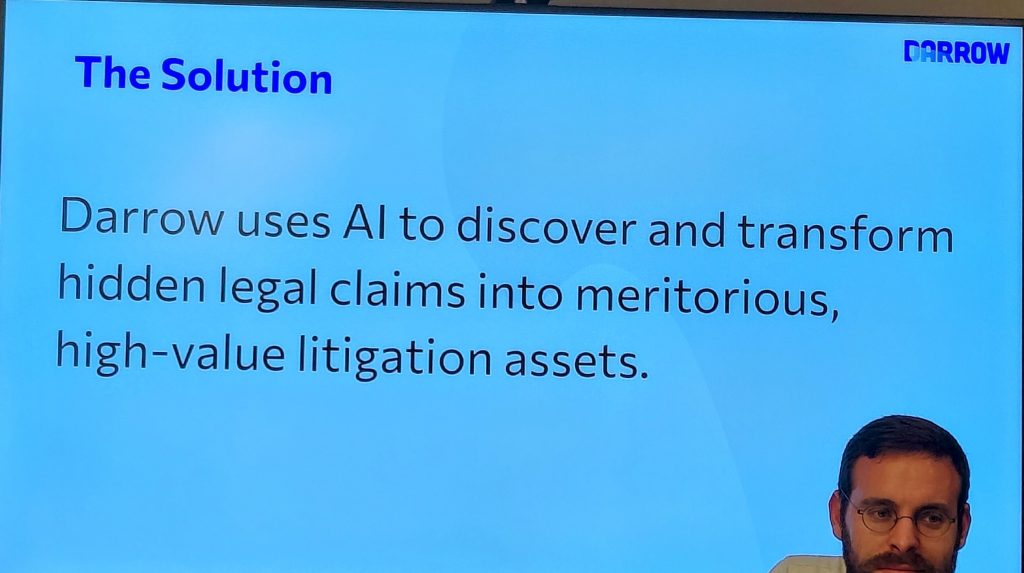
This is a fresh new view of legal tech. Instead of just making lawyers use tech (legal tech phase one) or replace some of the tasks being done by a lawyer (legal tech phase two), this might be described as the third generation of legal tech. So far legal tech has been focused on the lawyer and based on the way lawyers traditionally manage legal work, i.e tech centered around the lawyer. Hopefully we can now move away from this lawyer view and focus on the legal issues we like to solve. This means focus is moved to the customer and the legal problem. Applying advanced technology to legal problems can hopefully initiate new opportunities in the legal tech sector.

